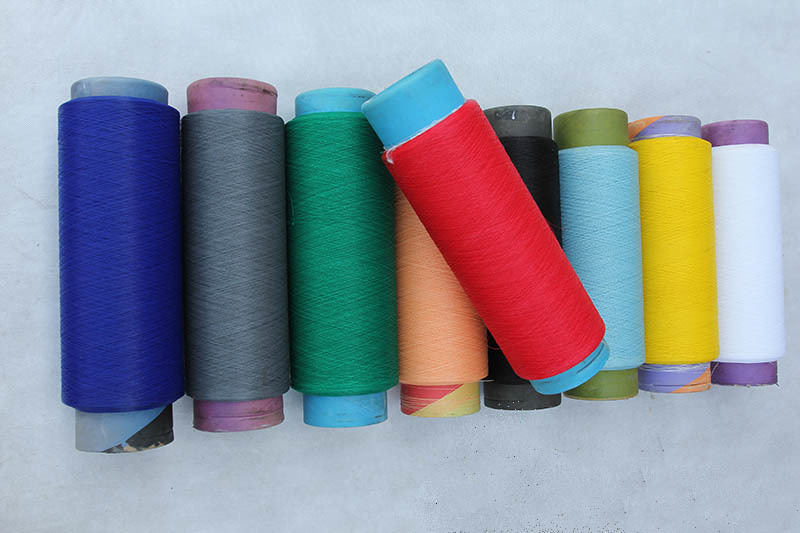The Applications and Advantages of Glass Fiber Plastic Coated Yarn in the Textile Industry
Introduction: Glass fiber plastic coated yarn is a crucial material in the textile industry, particularly in the production of chemical fibers. With its unique characteristics and countless benefits, this yarn has revolutionized the way textiles are manufactured. In this article, we will explore the applications and advantages of glass fiber plastic coated yarn in the context of the textile indust
Introduction:
Glass fiber plastic coated yarn is a crucial material in the textile industry, particularly in the production of chemical fibers. With its unique characteristics and countless benefits, this yarn has revolutionized the way textiles are manufactured. In this article, we will explore the applications and advantages of glass fiber plastic coated yarn in the context of the textile industry.
1. Reinforcement in Composite Materials:
One of the primary applications of glass fiber plastic coated yarn is its use as reinforcement in composite materials. When combined with other chemical fibers, such as polyester or nylon, the glass fiber yarn significantly enhances the strength and durability of the final product. This makes it an ideal choice for producing high-performance fabrics used in industries like aerospace, automotive, and construction.
2. Heat and Flame Resistance:
Glass fiber plastic coated yarn possesses excellent heat and flame resistance properties, making it suitable for applications in protective clothing and upholstery. Fabrics made from this yarn can withstand high temperatures and provide a barrier against flames. This attribute ensures the safety and protection of individuals working in hazardous environments.
3. Electrical Insulation:
Due to its non-conductive nature, glass fiber plastic coated yarn is widely used in the production of electrical insulation materials. It serves as a protective layer in wires and cables, preventing any risk of electrical shock or short circuits. The yarn's insulation properties also make it an ideal choice for applications in electronic components and circuit boards.
4. Chemical Resistance:
In industries where exposure to harsh chemicals is common, glass fiber plastic coated yarn proves its worth. Fabrics made from this yarn exhibit excellent resistance to chemical abrasion, degradation, and corrosion. This characteristic allows the textiles to maintain their integrity and functionality in environments such as laboratories, chemical processing plants, and industrial facilities.
5. Lightweight and Versatile:
Despite its exceptional strength and durability, glass fiber plastic coated yarn is remarkably lightweight. This attribute not only enhances the comfort of textile products but also offers flexibility and versatility in their application. From outdoor sports equipment to fashion apparel, the yarn's lightweight nature contributes to the overall performance and aesthetics of various textile products.
In conclusion, glass fiber plastic coated yarn plays a vital role in the textile industry, particularly in the production of chemical fibers. Its applications range from reinforcing composite materials to providing heat resistance, electrical insulation, chemical resistance, and versatility. By incorporating this innovative material into their manufacturing processes, textile companies can produce high-quality, durable, and functional products for various industries.
Glass fiber plastic coated yarn is a crucial material in the textile industry, particularly in the production of chemical fibers. With its unique characteristics and countless benefits, this yarn has revolutionized the way textiles are manufactured. In this article, we will explore the applications and advantages of glass fiber plastic coated yarn in the context of the textile industry.
1. Reinforcement in Composite Materials:
One of the primary applications of glass fiber plastic coated yarn is its use as reinforcement in composite materials. When combined with other chemical fibers, such as polyester or nylon, the glass fiber yarn significantly enhances the strength and durability of the final product. This makes it an ideal choice for producing high-performance fabrics used in industries like aerospace, automotive, and construction.
2. Heat and Flame Resistance:
Glass fiber plastic coated yarn possesses excellent heat and flame resistance properties, making it suitable for applications in protective clothing and upholstery. Fabrics made from this yarn can withstand high temperatures and provide a barrier against flames. This attribute ensures the safety and protection of individuals working in hazardous environments.
3. Electrical Insulation:
Due to its non-conductive nature, glass fiber plastic coated yarn is widely used in the production of electrical insulation materials. It serves as a protective layer in wires and cables, preventing any risk of electrical shock or short circuits. The yarn's insulation properties also make it an ideal choice for applications in electronic components and circuit boards.
4. Chemical Resistance:
In industries where exposure to harsh chemicals is common, glass fiber plastic coated yarn proves its worth. Fabrics made from this yarn exhibit excellent resistance to chemical abrasion, degradation, and corrosion. This characteristic allows the textiles to maintain their integrity and functionality in environments such as laboratories, chemical processing plants, and industrial facilities.
5. Lightweight and Versatile:
Despite its exceptional strength and durability, glass fiber plastic coated yarn is remarkably lightweight. This attribute not only enhances the comfort of textile products but also offers flexibility and versatility in their application. From outdoor sports equipment to fashion apparel, the yarn's lightweight nature contributes to the overall performance and aesthetics of various textile products.
In conclusion, glass fiber plastic coated yarn plays a vital role in the textile industry, particularly in the production of chemical fibers. Its applications range from reinforcing composite materials to providing heat resistance, electrical insulation, chemical resistance, and versatility. By incorporating this innovative material into their manufacturing processes, textile companies can produce high-quality, durable, and functional products for various industries.

评论
发表评论